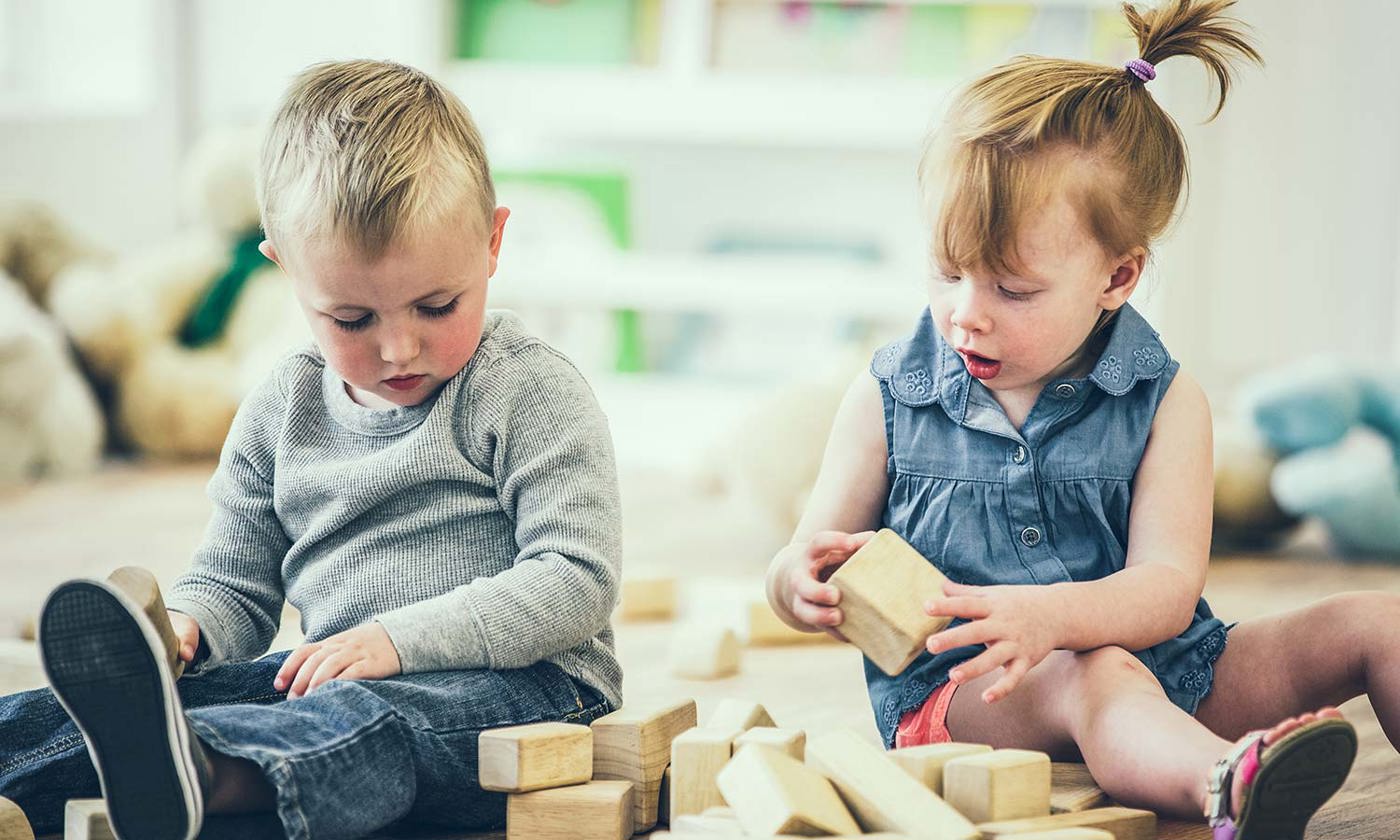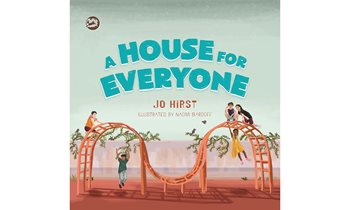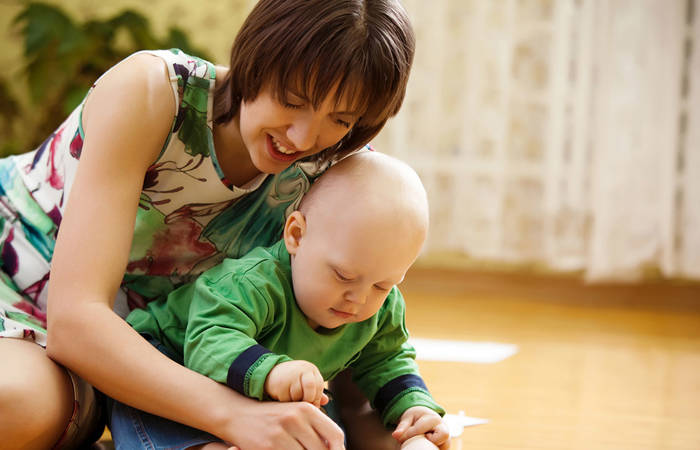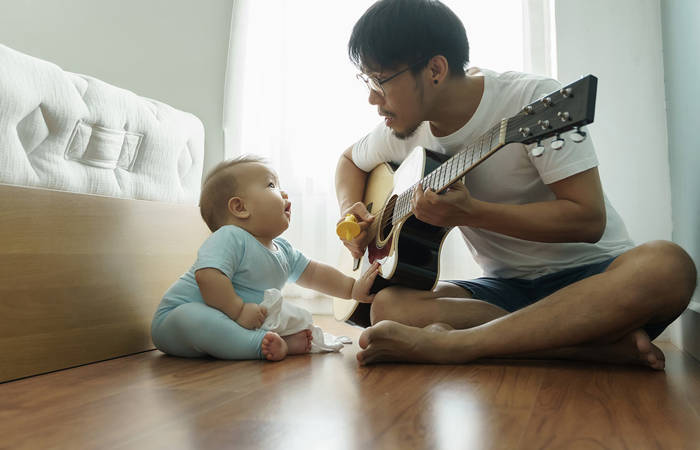Like what you see?
Sign up to receive more free parenting advice.
Thank you for subscribing to our newsletter!
Child Development

Credit: iStock.com/FatCamera
An Australian mother has written two books to help children and their parents thinking about gender issues during childhood.
Children’s book author Jo Hirst says the best thing parents can do is let their children express themselves through their play, clothing and toy choices without judgment.
Jo has drawn on her experience as a parent to a transgender child while writing about gender diversity in two books.
“The first book I wrote, The Gender Fairy, was for transgender children like my son, to let them know they were not alone and to help other children understand them,” Jo says.
“This second book, A House for Everyone, is more inclusive. It has five characters all with different gender expressions and gender identities.
 “I wanted a book that could show all children it’s ok to be who you are, wear the clothes that make you feel comfortable and play with the toys you enjoy.”
“I wanted a book that could show all children it’s ok to be who you are, wear the clothes that make you feel comfortable and play with the toys you enjoy.”
Jo says she wanted some characters that represented children who don’t follow gender norms to show children that whatever their gender expression it’s okay to be you.
“So there is a girl, Ivy, who likes her hair cut very short and chooses never to wear a dress and a boy, Jackson, who wears dresses,” Jo says.
“It was also important to me to have gender diverse children represented in the story.
“All children need to see themselves represented in the literature that they read.
“There is a boy, Tom, who was really ‘sad when everyone thought he was a girl’ but ‘now that everyone knows he is a boy’ he’s really happy. And another character, Alex, who ‘does not feel like just a girl or just a boy’.”
Jo says she believes her son had been trying to communicate about their gender from a very early age.
“I think my child had been trying in their own way to tell me their gender from the age of three, but only had the language to make me really listen and take them seriously when they were five,” she says.
“We were one of those lucky families who had easy access to appropriate health professionals, the Royal Children’s Hospital Gender Service, to chat about what was going on.
“We also had extremely supportive family and friends. Our school was an important part of the journey too. Without their support we would have been lost.”
We know more about how to support children and families and promote healthy development of children regardless of where they end up on the gender spectrum and help them with their place in a world, that’s often not very understanding of these types of issues.Professor Louise Newman
Facing the hard gender questions
Professor Louise Newman, Director of the Centre for Women’s Mental Health at the Royal Women’s Hospital and Professor of Psychiatry, University of Melbourne, urges parents not to panic when faced by their child’s confronting gender questions.
“Some parents are very anxious when children are asking the hard questions,” Professor Newman says.
“Keep the conversation going with the child. Explore with the child and try to sense if the child is troubled and worried about what is happening to them. That may be an indication that this could be something to consult a professional about to help parents explore what is actually happening.
“Parents need, as far as they can be, to be neutral and not punish the child or be cross. Try to avoid a child feeling guilty or ashamed. Give them the message that it is good they told you and that you will support them.”
Professor Newman says parents may face dilemmas when their child doesn’t want to conform to society’s gender norms. For example a little boy may want to wear a pink fairy costume to the shopping centre.
She says some families may struggle with this while others will be more liberal in their views, and suggests it’s important that families develop their own plan.
“There are different ways to create strategies and support a child that has to learn there are ways to get along in society. At some point a child will learn that there are certain compromises to be made for the sake of group conformation but we also need to develop ourselves as individuals.”
The difference between "gender" and "sex"
Professor Newman says the terminology of “gender” and “sex” has always been confusing.
She says sex differences are biological, determining whether we are male or female, whereas gender is a broader idea of what our culture or society considers to be masculine or feminine.
“There is a debate that goes on that is not clear cut. Ideas about what it is to be male or female change over time and from culture to culture.
“When we are talking to families we see a lot of different practises as to how they want to bring up their children.”
Gender awareness
Professor Newman says children’s awareness of gender roles is an emerging one.
“Children begin to be interested in bodies when they’re quite young. At one to two years of age they explore their own bodies and look at the bodies of others, but children of that age don’t have any idea that we are largely fixed with what we have.”
Professor Newman says a little boy might tell his pregnant mother that he “could have a baby like you” or a little girl sees her brother’s penis and says “I might get one of those”.
“About four years of age they start to get the concept that there are these differences and that they tend to persist and most children will identify with a gender that fits their body. There is a lot of variation there, but that is the general developmental pathway.
“There are some children who will go through a period of time not being comfortable with their bodies. That doesn’t mean they will have long term anxiety, but that they are taking their time understanding gender and things about how they will be as a person.
“You don’t have to be an ultra-tough boy, you might be a softer boy. You don’t have to be a girl who likes fairy outfits. A lot of children are somewhere in the middle. We all make choices and find a place where we are comfortable and identify with our bodies and children are going through that process.”
Gender dysphoria
Professor Newman says a small number of children may have gender dysphoria – a sense of not being comfortable with their allocated gender.
Should parents be concerned she recommends seeking assistance, starting with a GP or local children’s hospital for a specialist referral.
“We know more about how to support children and families and promote healthy development of children regardless of where they end up on the gender spectrum and help them with their place in a world, that’s often not very understanding of these types of issues.”
Many young trans and gender diverse children suffer unnecessary anxiety simply because they don’t have the language to explain to their parents about what is making them feel so sad or angry.Jo Hirst
Mental health
The Telethon Kids Institute 2016 Trans Pathways was a national online survey about the mental health of Australian trans young people.
It found they were at very high risk for mental health problems, self-harm and suicide, but that this can be improved by changing some of the risk factors and developing interventions. It also found services were lacking and education was desperately needed.
Results included that:
- Four out of five trans young people have ever self-harmed (79.7%) - this is compared to 10.9% of adolescents (12-17 years) in the Australian general population
- Almost 1 in 2 trans young people have ever attempted suicide (48.1%) - this is 20 times higher than adolescents (12-17years) in the Australian general population
- Three in four trans young people have ever been diagnosed with depression (74.6%) - this is 10 times higher than adolescents (12-17 years) in the Australian general population
- 72.2% of trans young people have ever been diagnosed with anxiety - this is 10 times higher than adolescents (12-17 years) in the Australian general population
Jo says the Telethon Kids Trans Pathways report gives an insight into some of the most dire consequences of what happens when trans and gender diverse youth are not supported by family, school and community and can’t get access to appropriate health care
“Alternatively, we know that when young trans people are supported by family they have the best mental health and academic outcomes,” Jo says.
“Australian medical professionals working with transgender children have all signed on to the new Australian guidelines encouraging parents to affirm their children and asking for education in schools and kindergartens to support transgender children.
“The best thing parents can do is listen to the advice of these professionals and even more importantly listen to your child.
“For all children it’s important to let them wear what makes them feel comfortable and play with the toys they enjoy, without judgement. But that’s not gender identity. That’s just gender expression.
“If they are telling you that the gender identity they were assigned at birth isn’t right, then listen to them. If you need to, think about seeing someone or join a parent support group like Parents of Gender Diverse Children”.
A board member of Parents of Gender Diverse Children, Jo Hirst says, as Australia’s largest peer support group supporting parents and primary care givers of trans and gender diverse children, the organisation can offer help to children and families.
“They provide support, education, advocacy and the opportunity to speak and meet with other parents and families.
“They also help connect you to the closest and best available therapists and health workers in your area and help to make sure your child’s pathway at school is smooth.”
Gendered marketing
Jo says gendered marketing has helped construct and reinforce society’s rules around gender roles and that parents can play a role in breaking these down.
“Most parents my age have noticed the steady increase in gendered marketing since the 1970s.
“Retail decides what presents your newborn baby should receive in hospital and for every birthday after that. Toy and clothing aisles in shops are allocated according to gender and now even bookshops have ‘boys’ and ‘girls’ shelves.
“As parents we can try and work around this by giving our children lots of choices. We can present them with a range of toys, games and clothing and let them choose.
“But we can’t stop the outside world from having a major impact.
“Children work out the ‘rules’ of our society and through our stores and advertising they quickly learn that there are rules for what boys and girls should wear and play with.
“Kids like rules and they tend to impose them on other children.
“You will often find kids policing the ‘rule’ of gender in the classroom.
“Pointing out to a boy playing with a doll that he is playing with a ‘girl’s’ toy. Implying that he has somehow broken these gender rules that they have seen played out on their televisions, when they are shopping and sometimes reinforced by adults.”
The role of language
Jo says parents can also play a role in giving young children the language to express themselves about their gender and understand that others may be different to them.
“Many young trans and gender diverse children suffer unnecessary anxiety simply because they don’t have the language to explain to their parents about what is making them feel so sad or angry,” Jo says.
“With very young children you don’t necessarily have to use big words like ‘transgender’ or ‘non binary’. You can show them that there are other children in the world who feel this way and that’s a normal part of human diversity.
“What’s important for young children is using the correct pronouns and names of others. It’s about basic respect.
“None of us like to be mislabelled or misrepresented but for trans and gender diverse children names and pronouns become especially sensitive.
“If someone feels intensely anxious and uncomfortable being labelled ‘boy’ or ‘girl’ and they are going to have a happier life with better mental health and academic outcomes living as their authentic self, then I don’t think it’s too much to ask that we show respect and refer to them by their name or the pronoun ‘they’.
“It’s a small effort on our part with a huge positive outcome for that individual whether they are a child or an adult.”
Jo Hirst’s gender supportive parenting tips
- Listen to your child.
- Offer them a range of toys and clothes to choose from.
- Support them no matter what their gender expression or gender identity.
- Let them know you love them for who they are inside.
- Get your information from the experts. Not from Facebook.
- Encourage them to embrace difference in others.
- Don’t judge a child who does not conform to gender norms. (As the saying goes, “don’t be your child’s first bully”.)
- Don’t refuse to let your child wear the clothes they like in public. (as long as they are suitable for the weather)
- Don’t use phrases with gender behaviour expectations such as “boys don’t cry”, “that’s a good kick for a girl”.
- Don’t become the gender police in your house by buying your child the “boy” or “girl” version of everything from bikes to lunch boxes. Ask them what they would like.
- Don’t believe “junk science” on social media. Fact check with real experts like the Royal Children’s Hospital or the Australian Psychological Society.
- Don’t close your mind to people who are different just because you may not understand them yet.



